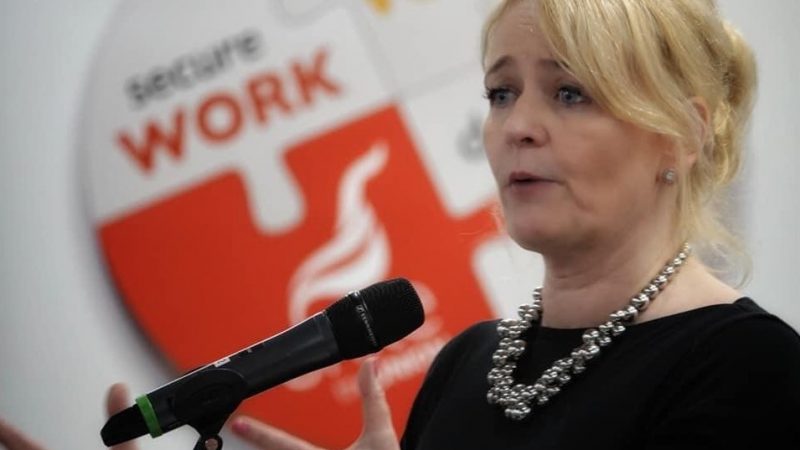
The big question of 2023 will be, who pays? During the pandemic, it was ordinary working people such as NHS workers, bus drivers, refuse collectors and supermarket workers who were sent out to keep the country going. Now the same working people are being made to pay the price. As this government lines up ‘austerity mark II’, we are seeing vital services run down and real-terms pay cuts. We are the fifth richest country in the world, and half of our NHS trusts are providing or planning food banks for staff. Government ministers want us to believe that they have no choice. But of course they do have choices – they just don’t want to make them.
Not everyone in the UK is suffering from the cost-of-living crisis. In August last year, a leaked Treasury Report showed that UK gas and energy companies were estimated to make “excess” profits of £170bn from the crisis over a period of just two years. Since then, this has been underlined by energy giants like Shell, BP and now British Gas owner Centrica reporting record profits coined in on the back of our massive energy bills. It is clear that the current energy taxes, including the belated, inadequate windfall tax with its generous get-outs, don’t touch the sides of that.
And what about the banks? The UK’s biggest four alone are on target for a second year of bumper profits. Yet the government has slashed the tax surcharge on the sector from 8% to 3% and lifted the cap on city bankers’ bonuses that was put in place to prevent a repeat of the last financial crisis in 2008.
And there are other sectors that have been raking in excess profits. Indeed, Unite research shows that profiteering is rife across multiple sectors. We have seen marked-up prices and record profits over the last few years in agribusiness giants, shipping lines and supermarkets. In fact, we have calculated that, since the period prior to the pandemic, profit margins for the whole FTSE 350 have jumped by 89%.
The government claims that they can’t afford a proper pay rise for the NHS. But let’s look at the facts. A 10% increase to total spending on NHS staff would cost £6.25bn. In reality, the cost to the Treasury would be much less. For starters, they would get about a third of that back in tax. But, even if you take the whole amount, it is clear that meaningful, tough taxes on profiteering could easily pay for a double-digit pay rise in the NHS. In fact, with just £50bn of these windfalls in taxes they could pay off the supposed £40bn ‘black hole’ in the government finances, offer a decent pay settlement for the NHS and still have lots of cash left over.
When Unite is faced with companies in the private sector making massive profits and trying to impose pay cuts, we demand our fair share of the pie for the workers. These employers would also like us to believe that they have no choice. But since I was elected, our industrial disputes have had a success rate of more than 80% and got well over £250m extra into our members’ pockets.
Now we need a government that is going to demand a fair share for the public sector. But instead we are seeing ever-widening wealth and income gaps driven on by profiteering and unworkable trickle-down economics. This economy is truly broken for everyday people, and until politicians start making different choices, we will all be paying the price.




More from LabourList
‘Labour’s quiet quest for democratic renewal’
‘Labour promised to make work pay. Now it must deliver for young people’
‘Council Tax shouldn’t punish those who have the least or those we owe the most’